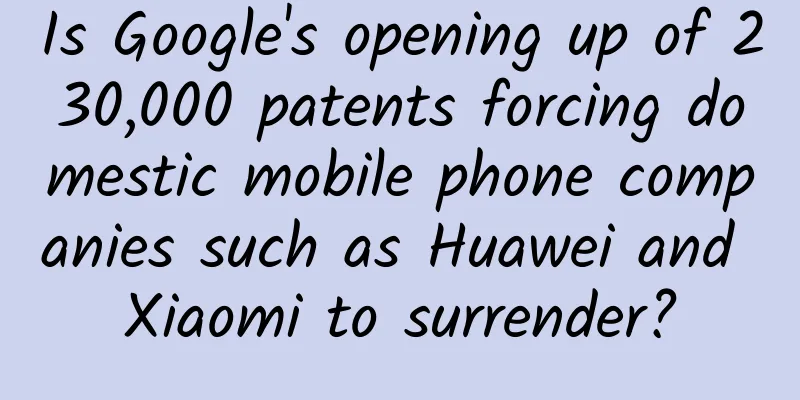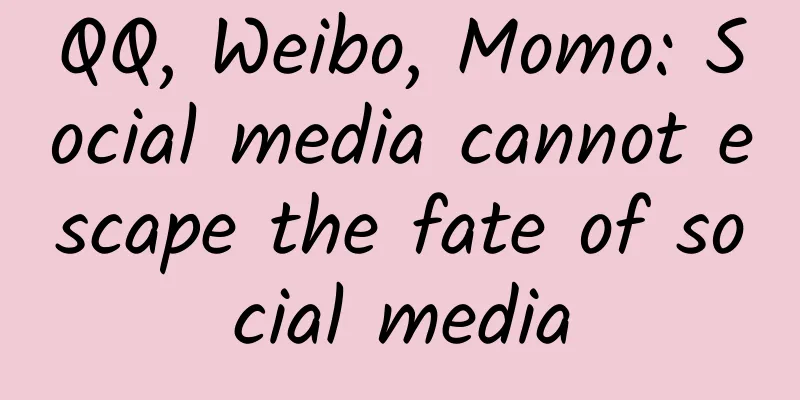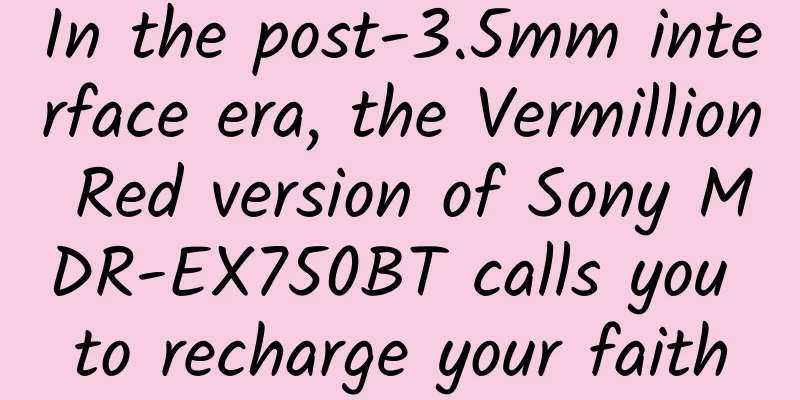Is Google's opening up of 230,000 patents forcing domestic mobile phone companies such as Huawei and Xiaomi to surrender?

|
Written in front: Is free sharing necessarily a good thing? That’s not necessarily the case. If some manufacturers are allowed to share their core technologies or patents for free, it would be a "devastating" harm to them. Patent cross-licensing was originally an option for patent holders to check and balance each other. It is also a direct manifestation of technology exchange and is carried out on an equal basis. However, if we draw a circle without distinguishing between technical strengths, and everyone entering the circle needs to share their patents for free, then this circle does not seem like sharing, but more like "robbing the rich to help the poor." And this may be the biggest problem with Google's PAX patent cross-licensing plan. Will the raging patent war in the mobile phone industry die down as soon as Google takes action? The answer is probably no. Recently, Google launched a patent cross-licensing program called "PAX". Mobile phone manufacturers that join the program will be able to use the patents of member units for free. Of course, the prerequisite is that the joining mobile phone manufacturers also need to simultaneously open their own patents for free. When the program was first launched, it attracted the participation of many mobile phone manufacturers including Samsung, LG, Foxconn, Coolpad, HMD, HTC, BQ and Allview. Together with Google itself, the PAX patent cross-licensing program covers as many as 230,000 patents. As long as you join the program, you can use up to 230,000 patents related to "Android system and Google applications" for free, which is a "pie in the sky" for new smartphone players or OEM manufacturers. It is said that Google's original intention in launching this plan was to deal with "patent troll" companies. But is this move by Google a good remedy to deal with "patent trolls"? Or is it a choice to "rob the rich and help the poor" against domestic mobile phone manufacturers such as Huawei? One after another: Google, Apple, Samsung, Huawei, etc. are all on the way to being sued or initiated Nokia sued Apple, Apple sued Qualcomm, Qualcomm sued Meizu, Samsung fought against Apple, Huawei fought against Samsung, Ericsson sued Xiaomi... For a time, the relevant manufacturers that once or now occupy an important position in the mobile phone industry are either on the way to sue others or on the way to being sued by others. From the perspective of the entities that instigate patent litigation disputes, there are both past or present mobile phone manufacturers, such as Nokia, Ericsson, Samsung, Apple and Huawei, as well as many NPE or PAE organizations. For example, Unwired Planet International (UPI), which has caused Huawei to lose multiple lawsuits in the UK, is an NPE or PAE organization. The company started out as a mobile software company, but in May 2012 it discontinued its products and businesses and transformed itself into a licensing and patent protection company. Since then, it has started acquiring patents in the market and conducting patent licensing business. The so-called NPE (Non-Practicing Entities, which means "non-practical entities" in Chinese) or PAE (Patent Assertion Entity, which means "patent assertion entity" in Chinese") refers to an organization or company that does not engage in the production or manufacturing of patented products but obtains revenue through patent licensing. In the eyes of many people, a few PAE organizations are also regarded as "patent trolls". The root cause is that these companies are not directly engaged in production and manufacturing, and the manufacturers being sued have lost the possibility of cross-licensing their patents. Once sued by them, they must pay patent fees unless they win the case. For example, in 2014, UPI not only sued Huawei, but also sued Google and Samsung. However, Google and Samsung reached a settlement with UPI in 2015 and 2016 respectively and began to pay patent fees to each other. Wishful thinking: Google's PAX patent cross-licensing program has limited effect on reducing patent litigation or disputes It is undeniable that in the field of smartphones, there are indeed a large number of patent institutions or companies that make a living from patent licensing income, and among them, there is indeed a small number of so-called "patent trolls." However, it should be said that there is nothing wrong with relying on patent licensing to earn revenue. This is the normal relationship between technology research and development and market returns. Many manufacturers, including Ericsson, Samsung, Nokia, Huawei, Qualcomm, etc., have more or less income from this aspect. From the perspective of the entire patent operation environment, it is not appropriate to adopt the attitude of "throwing out the baby with the bathwater" and completely deny the legitimacy and rationality of patent operation. Judging from the patent disputes currently involving major smartphone manufacturers, patent disputes from the field of communications technology and disputes based on standard essential patent licenses clearly account for a higher proportion. For example, the dispute between Ericsson and Xiaomi in India, the dispute between Nokia and Apple, and the dispute between Apple and Qualcomm in China, the United States and the United Kingdom. Many of these disputes are caused by communication technology or standard essential patent licensing. Simply put, the patents held by most "patent troll" companies may rarely directly involve the field of "Android system and Google applications", and patent disputes caused by "Android system and Google applications" are limited. Therefore, establishing a free shared patent pool cannot effectively prevent or eliminate lawsuits from "patent troll" companies. If Google’s PAX patent cross-licensing program isn’t a panacea for patent trolls, then what types of companies would it be more beneficial for? Robbing the rich to help the poor: Is Google's PAX plan more like forcing Huawei, ZTE and other domestic mobile phone manufacturers to submit their "letters of surrender"? Judging from the manufacturers that have joined the program so far, some manufacturers have accumulated a lot of patents, such as Samsung, but some manufacturers have limited patent accumulation, such as HMD, and some manufacturers have weak innovation, such as HTC. In addition, Foxconn is a representative of OEM manufacturers. Therefore, for those manufacturers that have already joined, the benefits obviously outweigh the disadvantages. According to Google statistics, there are currently 400 manufacturers and 500 telecom operators that have joined the Android ecosystem. These companies produced more than 4,000 Android devices last year alone, and there are more than 1.6 billion Android users worldwide. From Google's perspective, as the "leader" of the Android camp, it certainly hopes that there will be more and more manufacturers in the Android camp and that its market share will increase. Therefore, Google does not want any friction or conflict between smartphone manufacturers within the Android camp, such as the competition between Huawei and Samsung. But from the perspective of smartphone manufacturers, the fierce market competition and the brutal competition for users require continuous R&D investment and innovation in exchange for bargaining chips, which are in sync or consistent with Google's ideas. For example, Huawei just won the first-instance lawsuit against Samsung in the Quanzhou Intermediate People's Court. The court ordered Huawei to pay 80.5 million yuan in compensation and ban the sale of 22 Galaxy phones. The patents involved were related to smartphone control technology under the Android system. Therefore, for many domestic mobile phone manufacturers including Huawei, ZTE, Xiaomi, Meizu, OPPO, vivo, etc., joining the PAX patent cross-licensing program may bring more benefits or disadvantages than benefits, which may still be an unknown. On the one hand, joining the program will not necessarily lead to a reduction in lawsuits against "patent troll" companies. On the other hand, if their large annual R&D investment cannot be converted into market sales or patent licensing income, then this high investment may be unsustainable. Obviously, the value or role of the PAX patent cross-licensing program for OEM manufacturers based on brand licensing such as HMD and foundry manufacturers such as Foxconn is far greater than that for manufacturers with a large accumulation of patents such as Huawei and ZTE. As a winner of Toutiao's Qingyun Plan and Baijiahao's Bai+ Plan, the 2019 Baidu Digital Author of the Year, the Baijiahao's Most Popular Author in the Technology Field, the 2019 Sogou Technology and Culture Author, and the 2021 Baijiahao Quarterly Influential Creator, he has won many awards, including the 2013 Sohu Best Industry Media Person, the 2015 China New Media Entrepreneurship Competition Beijing Third Place, the 2015 Guangmang Experience Award, the 2015 China New Media Entrepreneurship Competition Finals Third Place, and the 2018 Baidu Dynamic Annual Powerful Celebrity. |
<<: Catching up with Ferrari, BAIC New Energy ARCFOX-7 has a peak torque of over 1,000
>>: Can Lynk & Co.'s plan to build an assembly plant in the U.S. become China's "Volkswagen"?
Recommend
Why do you always want to eat? You may be controlled by your gut bacteria!
Have you ever had this experience: you just finis...
The first JD Cup Smart Hardware Challenge came to an end. What will change if we stand on the "shoulders of giants"?
On August 20, after nearly three months, the firs...
Strategies for creating popular articles on Xiaohongshu!
01 About the hot articles on Xiaohongshu 1) For a...
How to sell tens of millions of wine through short videos?
Short video sales have become a common sales meth...
A test will shock you! Come and test the privacy risks of your mobile phone
[[392245]] Nowadays, mobile phone apps are seriou...
How much does it cost to invest in the Fuzhou Course Mini Program?
How much does it cost to attract investors for th...
What are the functions of Lanzhou’s garbage recycling mini program and how much does the garbage recycling mini program cost?
Since 2019, many cities in China have started to c...
I have summarized 2 experiences from the "Limited Free Class" fission activity
Event Background During this year's Spring Fe...
The promotion process of "giving away books" to attract new customers
Nowadays, many fission methods are carried out th...
Apple is also trying out high-tech, so how will domestic mobile phones survive this time?
"Apple phones are good in every way, except ...
The underlying logic behind Tik Tok’s full-case marketing!
In recent years, new brands have risen rapidly, n...
China Automobile Dealers Association: China's auto dealer inventory warning index is 54.7% in August 2022
On August 31, 2022, the latest issue of "Chi...
HDR TV sales will reach 2.5 million units next year, but the industry chain development faces huge challenges
At the opening ceremony of this year's Rio Ol...
Why does a bus make a jetting sound when the rear door is closed? The answer to the long-standing question is finally here
The jet sound when the rear door of a bus opens a...
How to forget you, does memory removal really exist?
In life, there are always some moments or people ...









